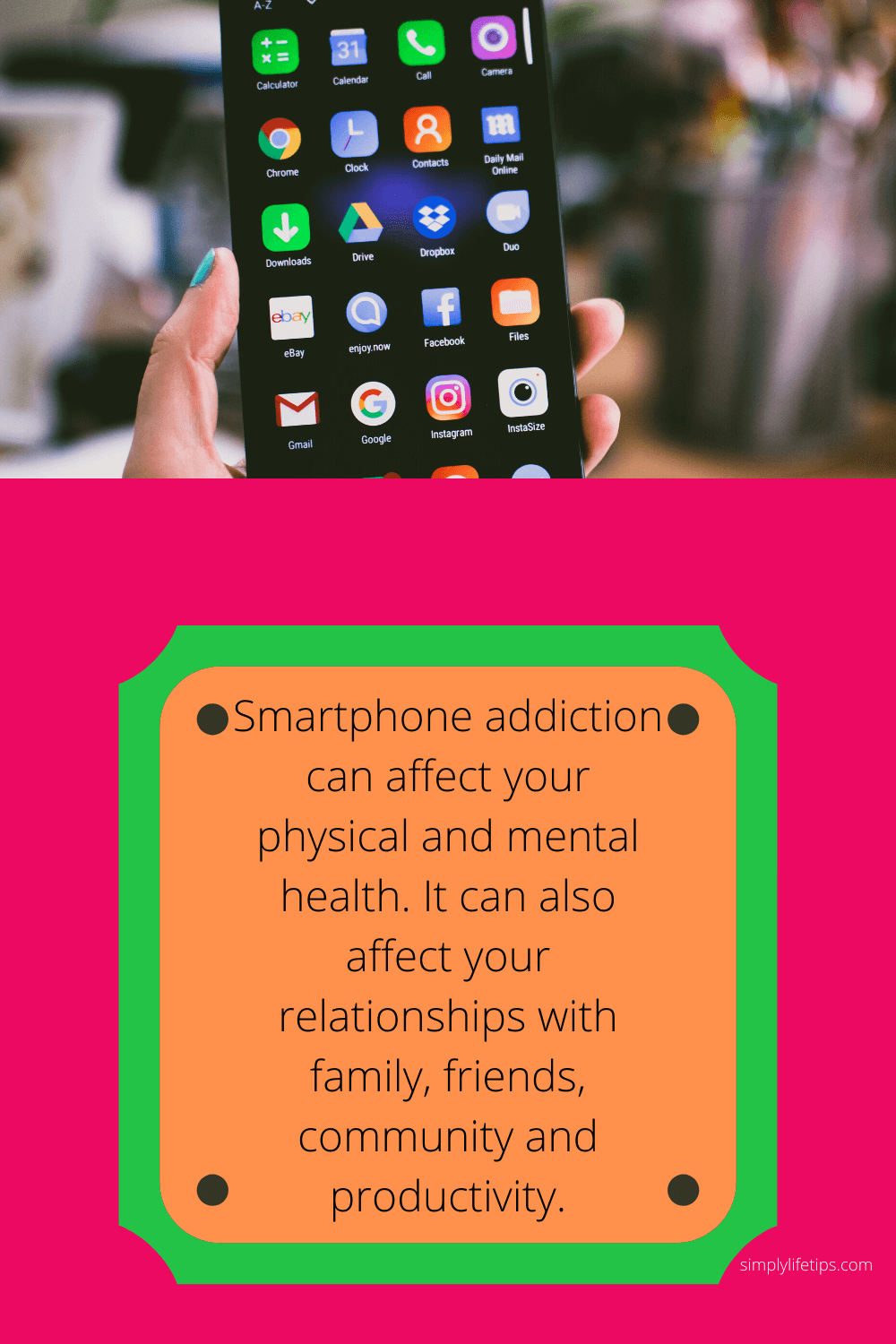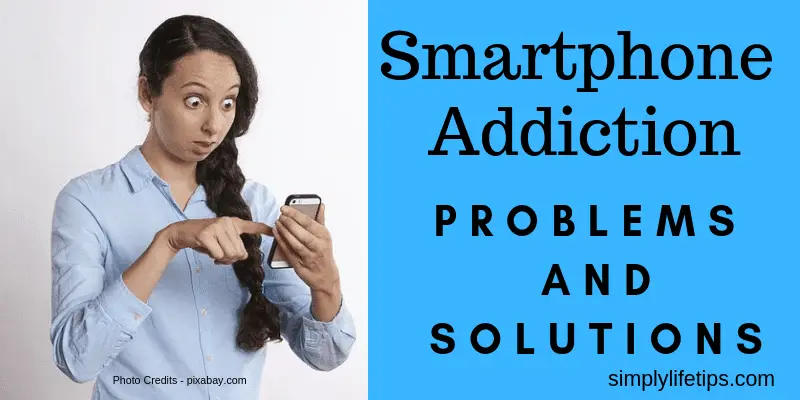Smartphone addiction has become an increasingly prevalent issue, impacting individuals worldwide. The ubiquitous presence of smartphones has led many people to develop a dependency on these devices, with some finding it challenging to be separated from them. This addiction is particularly noticeable among teenagers and young adults, who often spend a significant amount of their time engrossed in their smartphones. In this digital age, understanding and addressing smartphone addiction has become a crucial concern for individuals, families, and society as a whole.
Smartphone Addiction
- Do you have a smartphone addiction problem?
- If yes, what makes you so addicted?
- Is it safe to use your devices as much as you do?
- Do you wish to break your smartphone addiction?

Technology’s relentless advancement has revolutionized the way we live. Smartphones, in particular, have transcended demographic boundaries, seamlessly integrating into the lives of individuals regardless of their age, gender, cultural background, profession, or social status. These compact devices, now virtually ubiquitous, empower us to accomplish a myriad of daily tasks with the mere touch of a finger. From communication and information retrieval to entertainment and productivity, smartphones have become indispensable tools in our modern world, shaping the way we interact, work, and navigate our daily lives.
What is smartphone addiction?
Smartphone addiction, often referred to as “nomophobia” (short for “no-mobile-phone phobia”), is a behavioural addiction characterized by excessive and compulsive smartphone use. It involves a persistent need to use a smartphone, even when it interferes with daily life, work, relationships, or overall well-being. Smartphone addiction can manifest in various ways, including:
- Excessive Use: Spending an inordinate amount of time on the smartphone, often to the detriment of other activities.
- Withdrawal Symptoms: Feeling anxious, irritable, or restless when separated from the smartphone or unable to use it.
- Loss of Control: Repeatedly attempting to reduce smartphone usage without success.
- Neglecting Responsibilities: Neglecting work, school, household chores, or other obligations due to excessive smartphone use.
- Escapism: Using the smartphone as a way to escape from real-life problems, emotions, or stress.
- Social Isolation: Prioritizing online interactions over face-to-face relationships, leads to isolation from friends and family.
- Negative Consequences: Experiencing negative consequences in various aspects of life, such as declining mental health, sleep disturbances, or impaired academic or work performance, as a result of smartphone addiction.
Smartphone addiction can have serious consequences on mental health, physical well-being, and overall quality of life. It is essential to recognize the signs of addiction and seek support or intervention if necessary to regain a healthy balance in smartphone usage.
A considerable number of individuals grapple with smartphone addiction, Internet overuse, or what is known as Internet addiction disorder, often referred to as “nomophobia” which is the fear of being without a mobile phone. Unfortunately, many are oblivious to this issue and the detrimental effects it can have on their mental and physical health.
The pervasive nature of this problem is evident as people multitask with their smartphones in inappropriate settings, such as during movies in a dimly lit theatre, at the dinner table, during religious gatherings, while driving, or even in the midst of face-to-face conversations.
Furthermore, a significant portion of the population begins their day by reaching for their smartphones. It has become a routine to immediately check social media updates, emails, and other notifications upon waking up. Regrettably, some have developed the habit of keeping their smartphones on their beds while they sleep, with notifications disrupting their rest.
Are You Addicted to Your Smartphone?
This infographic provides insights into the common uses of smartphones and presents a comprehensive list of signs that may indicate smartphone addiction.
Read Teenage Addictions | How To Deal With Your Children
How To Manage And Control Smartphone Addiction
To manage and control smartphone addiction effectively, consider the following points:
- Set Usage Limits: Define specific times for smartphone use, like work hours or breaks, and adhere to these limits.
- Create Phone-Free Zones: Designate areas, such as the bedroom or dining table, where smartphone use is prohibited.
- Disable Notifications: Turn off non-essential notifications to reduce the urge to constantly check your phone.
- Prioritize Offline Activities: Dedicate time to offline hobbies, exercise, and social interactions to reduce screen time.
- Uninstall Tempting Apps: Remove apps that contribute to excessive phone use or replace them with productivity apps.
- Use Screen Time Tracking: Monitor your screen time through built-in features or third-party apps to become more aware of your habits.
- Seek Support: Share your goals with friends or family to hold yourself accountable, or consider seeking professional help if addiction is severe.
- Practice Mindfulness: Engage in mindfulness techniques to reduce impulsivity and increase awareness of smartphone usage triggers.
- Set App Limits: Utilize built-in app limits on some devices to restrict usage of time-consuming apps.
- Self-Reflect: Regularly assess your smartphone habits and make necessary adjustments to maintain a healthy balance in your life.
The video presented by Ross Sleight delves into the profound consequences of smartphone addiction, examining its effects on both individuals and society as a whole.
A significant number of individuals squander their precious time indulging in social media, entertainment, and trivial matters that contribute little to a prosperous life. It is essential always to utilize your time wisely and constructively, recognizing the value of time as something invaluable and beyond price.
Smartphone addiction has the potential to undermine both your physical and mental well-being, as well as your relationships with family, friends, community, and overall productivity. Therefore, it is crucial to adopt habits like those outlined in the article “4 Excellent Habits To Beat Digital Distraction” to counteract these adverse effects.
While experts continuously develop new technologies for the betterment of life, it is essential to use these devices judiciously, as their misuse can have detrimental consequences on various aspects of one’s life.
Final Thoughts
In conclusion, smartphones are undeniably valuable tools for navigating the modern world. However, it is of utmost importance to exercise caution and mindfulness in how, when, and why we use them. By harnessing the technology at our fingertips in a purposeful and controlled manner, we can ensure that smartphones remain a source of convenience and not a problem or addiction in our lives. It all comes down to using these devices as instruments for enhancing our daily experiences and maintaining a healthy balance with the real world.
Is your phone using you?
How many times a day do you check your phone or browse through Social Media?
I appreciate your visit. I trust you found the post enjoyable.
Remember, Sharing Is Caring! Feel free to share this post on your social media and other networks to help others discover it.

Mathukutty P. V. is the founder of Simply Life Tips. He is a Blogger, Content Writer, Influencer, and YouTuber. He is passionate about learning new skills. He is the Director of PokketCFO.
He lives with the notion of “SIMPLE LIVING, CREATIVE THINKING”. He Believes – “Sharing is caring.” and “Learning never ends.”




